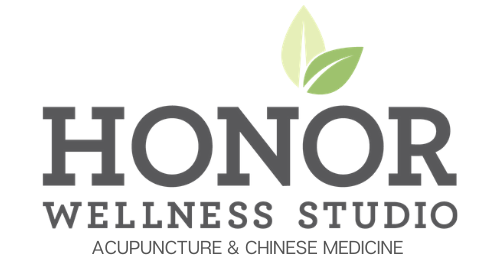
What are Allergies?
Allergies occur when your immune system reacts to a foreign substance that usually wouldn’t be harmful. Your immune system is responsible for protecting your body, by fighting harmful substances. But when your immune system reacts to something that isn’t normally dangerous, this causes an allergic reaction. Read on to find out more about allergies and how Chinese Medicine can help you treat them.
Allergy Symptoms:
Your allergy symptoms will depend on the type and severity of your allergy. Common symptoms of seasonal allergies like hay fever include:
- Runny nose
- Swollen, itchy, or watery eyes
- Congestion
- Coughing
The symptoms of food allergies are different to those of seasonal allergies. Food allergy symptoms include:
- Hives
- Nausea
- Swelling
- Fatigue
Severe allergies can also cause anaphylaxis. This can lead to difficulty breathing, light-headedness, and loss of consciousness. If you experience these symptoms, seek emergency medical assistance. Anaphylaxis is a life-threatening condition and must be treated immediately.
What Causes Allergies?
Allergic reactions occur when your immune system reacts to substances called allergens. Allergens are substances that usually aren’t harmful but cause immune system reactions in some people. Researchers don’t know why some people’s immune systems cause allergic reactions to certain substances. However, genetic factors may play a part.
Common allergens include:
- Animal products such as cockroaches, dust mites, and pet dander
- Food, including milk, eggs, shellfish, wheat, and nuts
- Mould
- Insect stings (including bees, wasps, and mosquitoes)
- Drugs (such as penicillin and sulpha drugs)
- Plants, including pollen from grasses and trees, and resin from poison ivy and poison oak
Allergy Treatment:
Although there are treatments available for allergies, the best way to avoid symptoms is to avoid your allergens. But when this isn’t possible, treatments like medication, immunotherapy, and emergency epinephrine are common treatment options.
Allergy medications include antihistamines, cetirizine (Zyrtec), loratadine (Claritin), corticosteroids, and decongestants. The medication your doctor prescribes will depend on what allergy you have, your symptoms, and the severity of your reaction. However, always discuss carefully with your doctor before taking medications, as most medications come with the risk of side effects. For example, Singulair (a leukotriene modifier), can cause serious mood and behaviour changes such as suicidal inclinations.
Immunotherapy is a common allergy treatment that helps your body adapt to your allergen. This is done through a series of injections that are administered over time. Emergency epinephrine shots (like EpiPen and Twinject) can be carried with you if you have a life-threatening allergy. The shot works by countering your reaction until medical help arrives.
How Can Chinese Medicine Help?
If you suffer from allergies and mainstream treatments aren’t working, Chinese Medicine is a great option for you! Traditional Chinese Medicine is also a great choice if you’re looking for a safer, more natural treatment for your condition. Chinese Medicine uses effective and holistic methods like acupuncture and Chinese herbs to heal the underlying causes of your symptoms.
Acupuncture is an important part of Chinese Medicine. In this technique, your acupuncturist places very thin needles into specific points on your body. This allows them to manipulate the flow of energy through your body and make healing adjustments. Researchers have found that acupuncture can be used to alleviate allergy symptoms. One study found that, “acupuncture was reported to be effective particularly in the reduction of nasal and conjunctival signs and symptoms with improvement in the quality of life.”
Chinese herbal medicine (CHM) is another important aspect of treatment. Researchers have found that certain Chinese herbs can be used to treat food allergies, and allergic rhinitis (AR), as shown by two studies. The first study found that, “The food allergy formula (FAHF-2) has demonstrated a very promising role as a novel treatment for food allergy.” Similarly, “the present study suggests that CHM may be an effective therapy for AR.”
Conclusion:
Overall, allergies occur when your immune system reacts to substances (allergens) that wouldn’t usually be dangerous. Common allergens include foods, pollen, insect stings, and some drugs. The symptoms of allergies may be minor (like a runny nose or itchy eyes), but in some cases allergic reactions could be life-threatening (such as anaphylaxis). Medications, immunotherapy, and emergency epinephrine are all common treatment options for allergies. Chinese Medicine is a special treatment option however, as it can relieve your allergy symptoms naturally by addressing your underlying health issues.
References:
Hauswald, B., & Yarin, Y. M. (2014). Acupuncture in allergic rhinitis: A mini-review. Allergo Journal International, 23(4), 115–119. https://doi.org/10.1007/s40629-014-0015-3
https://www.ncbi.nlm.nih.gov/pmc/articles/PMC4479426/
Krans, B., & Holland, K. (2018, June 5). Everything You Need to Know About Allergies. Healthline. https://www.healthline.com/health/allergies
Wang, J., & Li, X. M. (2012). Chinese herbal therapy for the treatment of food allergy. Current Allergy and Asthma Reports, 12(4), 332–338. https://doi.org/10.1007/s11882-012-0265-4
https://www.ncbi.nlm.nih.gov/pmc/articles/PMC4276304/
Zhang, X., Lan, F., Zhang, Y., & Zhang, L. (2018). Chinese Herbal Medicine to Treat Allergic Rhinitis: Evidence From a Meta-Analysis. Allergy, Asthma & Immunology Research, 10(1), 34–42. https://doi.org/10.4168/aair.2018.10.1.34 https://www.ncbi.nlm.nih.gov/pmc/articles/PMC5705481/
